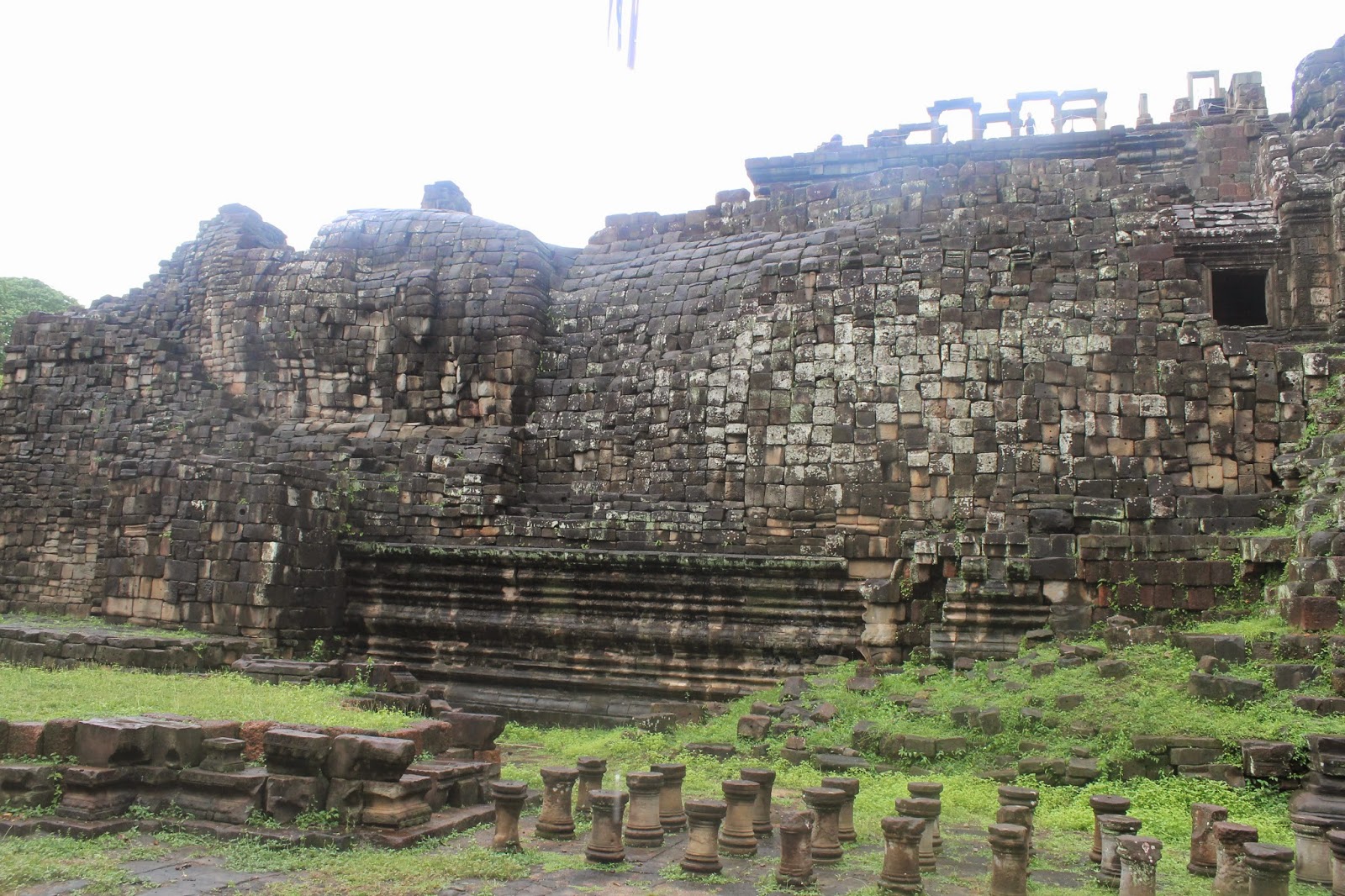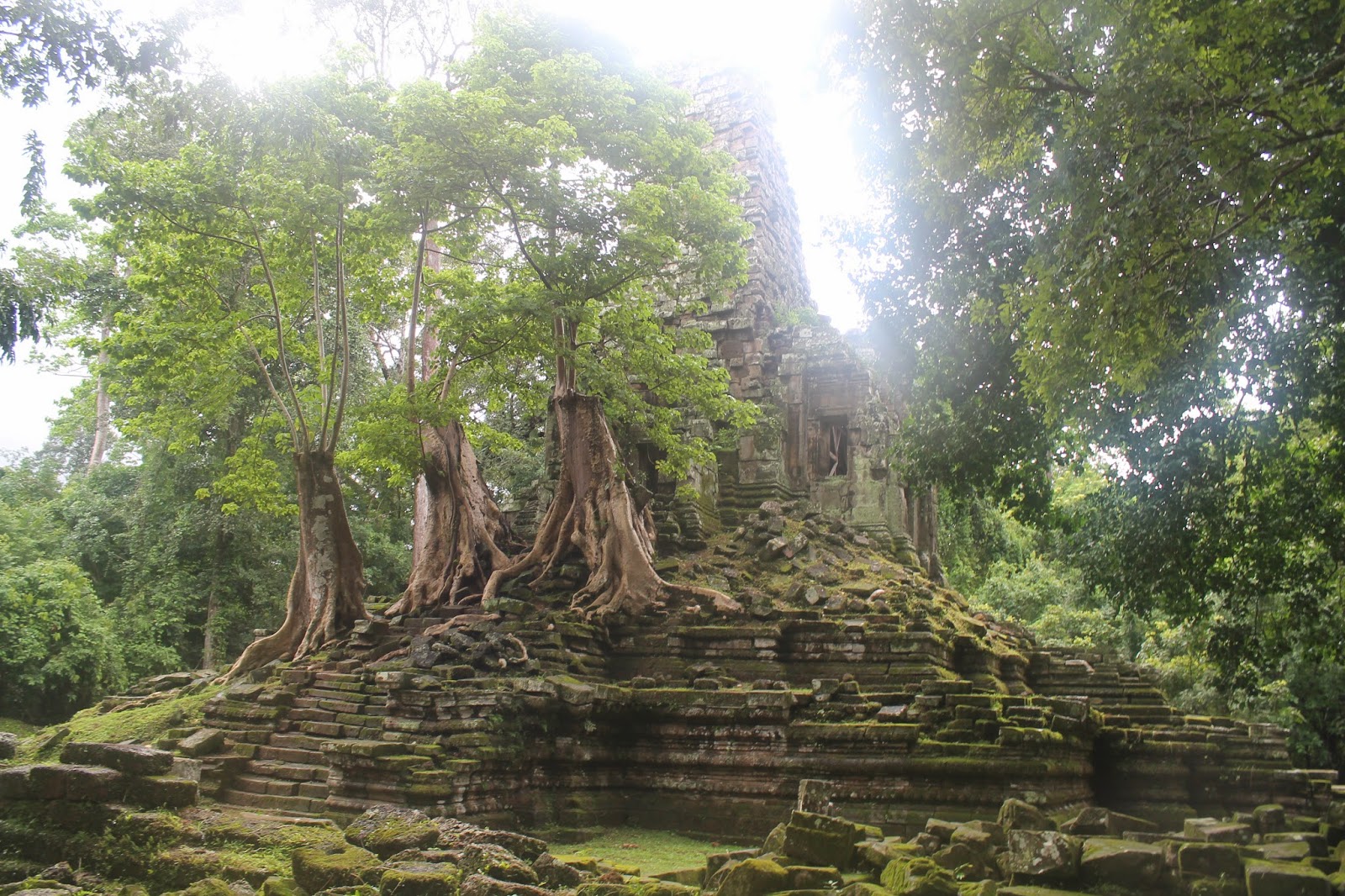I'm not sure how well known it is among Americans but I never even heard of Angkor before moving to Asia. Not sure if that just means I have a weird gap in my knowledge or it is because Asian history isn't really taught much in the states. In case you are like me and never heard of it Angkor is the most beautiful archaeological site I've ever seen. It was built from the 9th to 15th century by the Khmer empire in what is modern day Cambodia.
It is a huge site made up of many beautiful temples. The three most impressive are
1 Angkor Wat
2 Ta Prohm
3 Bayon Temple

There were a bunch of other minor temples that were also really beautiful. We enjoyed taking it slow and wondering through the sites. Emma and I brought along our sketchbooks and stopped to draw and just relax and enjoy the view now and then. We hired a tuk tuk driver from our hotel for two days and he took us around to all the temples for about $15 a day. The third day we road bikes to the temples. A few tours went by while we were there and we were both very happy not to take one and to go at our own pace.
The guides kept talking in thick accents about temples where Tomb Raider was filmed. Siem Reap hasn't taken it as far as Udaipur though. When Danny and I were in Udaipur every hotel had regular viewings of Octopussy, but they seem pretty proud to be the site of a Hollywood movie. I have to admit, it isn't a bad gimmick. After visiting Angkor Wat I wanted to watch Tomb Raider just to see the sites we'd visited.

We also stopped at an artisan workshop where they made crafts including stonework similar to what is found inside the temple. Apparently, in addition to selling their work to tourists they used their work to refurbish the temples. I'm not sure how I feel about renovating archaeological sites as compared to preserving them but it was a cool place and they trained locals in an impoverished country to have a skilled trade.

It is a very poor country and I was worried it would be really unpleasant and we'd be hassled for money non-stop like in India. People there were way more laid back and friendly. There were beggars and sales people but they weren't pushy or rude. If you said you weren't interested, they pretty much left you alone. It also may have helped that we went during the rainy season so it wasn't very crowded. I'd heard stories from friends about naked children begging for money, and it sounded awful. There were naked babies but people there just don't bother with baby clothing if they can't afford it, it is pretty hot there so whatever...
The city of Siem Reap was also way nice and more developed than I expected. Our hotel was really cute. I picked one with good reviews on Agoda. The restaurants and bars were very globalized and built up to accommodate tourists. I was a little sad nowhere had local food to try though. We ate pancakes, Tex Mex and ice cream instead... We actually were able to find some western goods in the touristy area of Siem Reap a lot more easily than in Shanghai.
I'm glad we went in the rainy season and there weren't too many other tourists. I brought rain ponchos and we wore them for about an hour a day when it poured. The rest of the day the weather was beautiful.
The only bad part of the trip was I felt a little bit like we were being scammed when we did a tour of the floating village. They offer boat tours for $24 when right below there are water taxis locals take for $1. It is a tourist boat so I guess that makes sense but it is quite a markup. The guide tells you a bit about the village then they try to sell you ridiculously overpriced $40 bags of rice to donate to the school and he got mad and sulked when we didn't buy any. He just didn't speak to us after that... It was still interesting to see how people lived. Their homes are on boats, the school and stores are on boats too. There was no electricity but people bought generators if they could afford it or used batteries. There was no running water and they bathed in the very polluted lake. The life expectancy was low and there were lots of problems but it didn't seem that horrible. People looked fairly happy and well fed at least.








